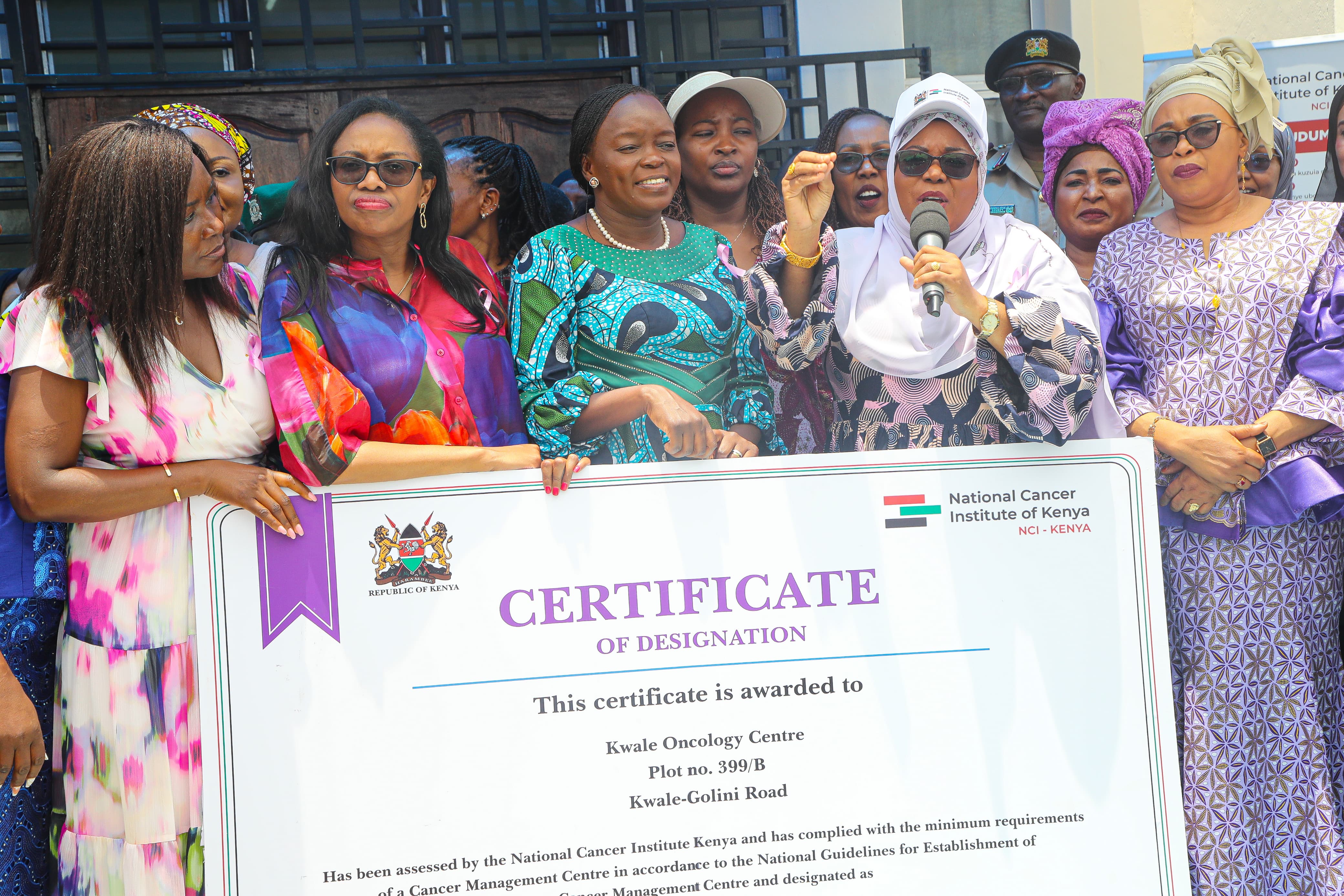
The
Ministry of Health has emphasised the importance of early screening as key in
combating cancer burden in the country.
Health
CS Deborah Barasa has raised concern that many patients get diagnosed at late-stage
disease hence affecting the treatment outcomes.
Barasa
spoke when she commissioned Kwale Subcounty Hospital Oncology Centre.
The
Kwale Oncology Centre is anticipated to significantly alleviate the burden on
cancer patients in the coastal region by minimising the need for long-distance
travel to larger treatment facilities.
Currently,
Kwale patients depend on Nairobi and Mombasa facilities, which are sometimes
crowded.
The modern
cancer facility with a capacity to serve more than 50 cancer patients will
offer screening, radio and chemotherapy treatments, surgical, laboratory and
counselling services, including the support groups.
It is
also expected to open its doors for research programmes and provide an
opportunity for a better understanding of cancer treatment for students
pursuing complex medicine studies.
“I urge
all Kenyans to engage in the battle against cancer through early screening,
awareness initiatives, and community support for those affected,” Barasa said.
“We each
have a role to play in ensuring no one faces breast cancer alone. The time to
act is now. The opening of this oncology center is a significant step forward
in ensuring that more Kenyans have access to life-saving cancer care,” Barasa
said.
Designated
as a Mid-Level Cancer Centre, the Kwale facility will be able to provide
comprehensive cancer care aligned with international standards.
Barasa
underscored the urgent need for improved cancer care in Kenya, noting that
breast cancer is the most frequently diagnosed cancer, accounting for 23 per
cent of all cases with 7,243 new diagnoses annually.
The CS affirmed
that the ongoing reforms under the Social Health Authority (SHA) are designed
to enhance healthcare accessibility and affordability.
She encouraged
all Kenyans to register with SHA to take advantage of free primary healthcare
and access essential health products and technologies.
Barasa also
presided over the groundbreaking of a new Intensive Care Unit (ICU) and Renal
Unit at Kinango Subcounty Hospital.
The
establishment of the ICU and Renal Unit is critical for providing essential
care during emergencies and addressing the growing prevalence of kidney-related
health issues.
The
initiative aims to ensure that residents receive the medical attention they
need locally, supporting the health and well-being of those in Kinango Subcounty.
“The government
recognises that good health is foundational to development, and the new ICU and
Renal Unit are essential steps toward achieving UHC while alleviating the
financial burdens often associated with healthcare,” the CS said.
She
added: “Investing in local healthcare infrastructure promotes economic growth, job
creation, and community resilience.”
G7 members
including Anne Waiguru, Wavinya Ndeti, Cecily Mbarire, Kawira Mwangaza, Susan
Kihika, and Gladys Wanga were present.
Also
present were the National Cancer Institute of Kenya CEO Elias Melly and CEO of
the Council of Governors (CoG) Mary Mwiti.

